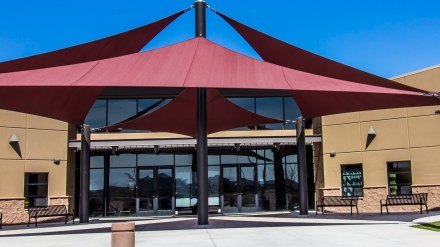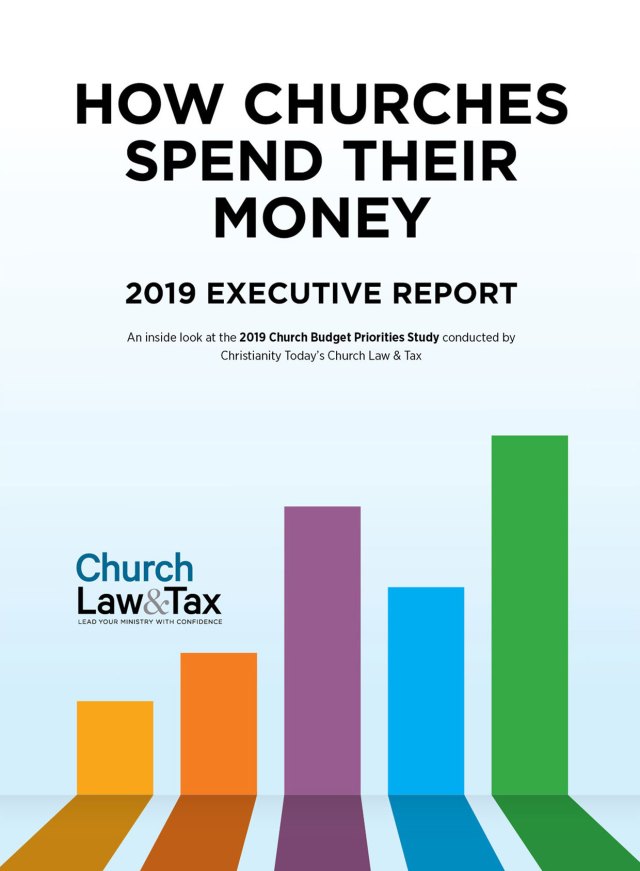The US Small Business Administration (SBA) has issued new guidance confirming the eligibility of churches and faith-based organizations for the Paycheck Protection Program (PPP) loans and Economic Injury Disaster Loans (EIDL) made possible through the recently enacted CARES Act.
The language of the $2.2 trillion CARES Act calls for the SBA to administer certain relief-related loans, including the PPP loans starting April 3, 2020. The PPP loans, worth 2.5 times the average monthly payroll of employers with 500 or fewer workers, can be forgiven and converted into nontaxable grants if certain criteria are met by recipients eight weeks after their origination dates. The goal is to inject cash, protect jobs, and stimulate the economy as the fallout from the COVID-19 (coronavirus) outbreak continues wreaking havoc on businesses and households.
The Act’s language suggests for-profits and tax-exempt organizations alike can apply for the loans, even though certain tax-exempt entities, including churches, often are ineligible to participate in typical SBA programs.
But confusion immediately erupted on April 2 and April 3 when some churches contacted SBA-approved lenders and were told they were ineligible for the PPP loans. Church Law & Tax, for instance, received numerous messages from church leaders indicating their lenders turned them away.
In a “Frequently Asked Questions” (FAQ) document released late in the evening of April 3, SBA officially clarified its position, stating “no otherwise eligible organization will be disqualified from receiving a loan because of the religious nature, religious identity, or religious speech of the organization.”
“(T)he CARES Act explicitly makes nonprofit entities eligible for the PPP program,” the FAQ continues, “and it does so without regard to whether the nonprofit entities provide secular social services.”
All of the same terms required of other employers are required of churches and religious nonprofits, the FAQ adds, noting “under these [outbreak] circumstances, the Establishment Clause does not place any additional restrictions on how faith-based organizations may use the loan proceeds received.”
Additionally, the SBA guidance provides further clarification regarding houses of worship with respect to their tax-exempt recognition. Under the First Amendment guarantee of religious freedom, churches are automatically considered exempt from federal taxation and do not need to seek official recognition from the Internal Revenue Service (IRS) to demonstrate that status. The FAQ states churches do not need to seek a tax-exempt status letter from the IRS in order to proceed with documentation requirements for PPP or EIDL applications.
The FAQ also contains several other notable statements, including:
- Churches and religious organizations will not sacrifice their autonomy or First Amendment rights by requesting and receiving loans. The SBA says:
A faith-based organization that receives a loan will retain its independence, autonomy, right of expression, religious character, and authority over its governance, and no faith-based organization will be excluded from receiving funding because leadership with, membership in, or employment by that organization is limited to persons who share its religious faith and practice.
- The only legal requirements imposed on churches and religious organizations in exchange for receiving loans are those required of all entities participating in the program:
Any legal obligations that you incur through your receipt of this loan are not permanent, and once the loan is paid or forgiven, those nondiscrimination obligations will no longer apply … Consistent with certain federal nondiscrimination laws, SBA regulations provide that the recipient may not discriminate on the basis of race, color, religion, sex, handicap, age, or national origin with regard to goods, services, or accommodations offered. 13 C.F.R. § 113.3(a). But SBA regulations also make clear that these nondiscrimination requirements do not limit a faith-based entity’s autonomy with respect to membership or employment decisions connected to its religious exercise.
However, churches and church leaders also should note this caution from the FAQ regarding activities they conduct that may fall under certain SBA requirements with respect to public accommodations:
SBA therefore clarifies that its regulations apply with respect to goods, services, or accommodations offered generally to the public by recipients of these loans, but not to a faith-based organization’s ministry activities within its own faith community. For example, SBA’s regulations will require a faith-based organization that operates a restaurant or thrift store open to the public to serve the public without regard to the protected traits listed above. But SBA’s regulations do not apply to limit a faith-based organization’s ability to distribute food or clothing exclusively to its own members or co-religionists. Indeed, SBA will not apply its nondiscrimination regulations in a way that imposes substantial burdens on the religious exercise of faith-based loan recipients, such as by applying those regulations to the performance of church ordinances, sacraments, or religious practices, unless such application is the least restrictive means of furthering a compelling governmental interest.
- Churches and faith-based organizations are not necessarily disqualified from the CARES Act loan programs due to affiliations with other faith-based organizations. SBA says:
If the connection between your organization and another entity that would constitute an affiliation is based on a religious teaching or belief or is otherwise a part of the exercise of religion, your organization qualifies for an exemption from the affiliation rules. For example, if your faith-based organization affiliates with another organization because of your organization’s religious beliefs about church authority or internal constitution, or because the legal, financial, or other structural relationships between your organization and other organizations reflect an expression of such beliefs, your organization would qualify for the exemption. If, however, your faith-based organization is affiliated with other organizations solely for non-religious reasons, such as administrative convenience, then your organization would be subject to the affiliation rules. SBA will not assess, and will not permit participating lenders to assess, the reasonableness of the faith-based organization’s good-faith determination that this exception applies.
The agency then continues:
If you believe that your organization qualifies for this exemption to the affiliation rules, you should submit with your loan application a separate sheet stating as much. That sheet may be identified as addendum A, and no further listing of the other organizations with which your organization is affiliated, or description of the relationship to those organizations, is required. You are not required to describe your religious beliefs.
The FAQ includes a sample addendum churches and religious organizations may use. But it also says applicants can write their own and that the statements “can be very simple.”
The latest guidance from SBA came just hours after other guidance it issued with respect to the relaxing of the agency’s nondiscrimination rules for churches and religious organizations that apply for PPP. That guidance says “all loans guaranteed by the SBA pursuant to the CARES Act will be made consistent with constitutional, statutory, and regulatory protections for religious liberty, including the First Amendment to the Constitution, the Religious Freedom Restoration Act” and a SBA regulation that states:
Nothing in [SBA nondiscrimination regulations] shall apply to a religious corporation, association, educational institution or society with respect to the membership or the employment of individuals of a particular religion to perform work connected with the carrying on by such corporation, association, educational institution or society of its religious activities.”
The Act’s language regarding the $349 billion program calls for a streamlined application process aimed to put funds into the hands of small employers quickly.
By providing some basic information about employee headcounts and payroll costs, employers can receive a loan worth 2.5 times the amount of their average monthly payroll over an eight-week period. At the end of the eight weeks, the employers can have the loans forgiven—effectively converting them into a nontaxable grant—if they show they spent funds on specific payroll and operational costs and maintained certain employment counts and compensation levels. If the loan is not forgiven, or only partially forgiven, it is carried forward as an ongoing loan with a term of two years at 1 percent interest.





